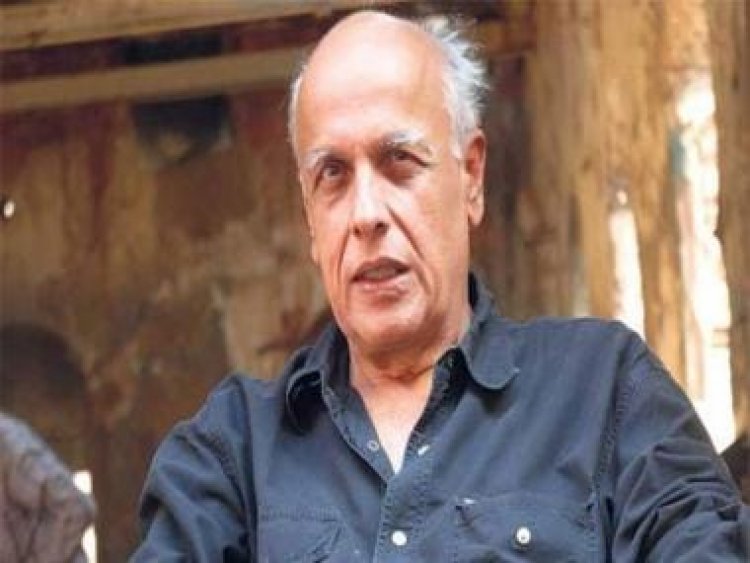Janam: Mahesh Bhatt’s semi-autobiographical feature on the birth of a director
Janam: Mahesh Bhatt’s semi-autobiographical feature on the birth of a director

Movies which discuss filmmaking inevitably end up peeking behind the silver screen to educate the viewers on joys and pains of the cinematic process. The director’s filmmaking ideology and belief system, which help shape his cinematic vision, are well and truly visible in such features.
Veteran director and producer Mahesh Bhatt has never been afraid of using his life as a platform for his cinema. Yet, one of his most autobiographical films remains unknown to the audience at large. Janam was a remarkable effort featuring a focussed script, a decent background score, and a stellar cast including the likes of Anupam Kher – who had recently found fame in Saaransh, Akash Khurana, Kumar Gaurav, Shernaz Patel and Anita Kanwar. However, the movie which premiered on Doordarshan back in 1985, failed to develop a following over the years despite garnering a number of Filmfare nominations and was lost to time.
A remarkable facet about Janam was that it acted as a window into the director’s mind: featuring all the tropes present in his ‘personal features’. The film also provided an explanation behind Mr. Bhatt’s creative reliance on instances from his private life.
The movie is about Rahul (Gaurav), the son of an established director Virendra Desai (Kher), who dreams of becoming a successful filmmaker. His mother Nalini (Kanwar) is not the legally wedded wife of Virendra. Under societal pressure, Virendra dedicates himself to his lawful family, while relegating Rahul and Nalini to a secondary status. This is the truth that the boy has to relive every day.
Rahul’s ‘second’ family demeans and insults him for being the ‘other’ son – even denying him the right to participate in his grandmother’s final rites, whereas he gets little emotional space from his father. In one instance, Rahul is told that he has no claim to his family name. These events force him to question his relations with others and the meaning of life itself.
This plotline, which was a variation of Bhatt’s childhood reality, centring around the questions of legitimacy and undefined relationships has featured time and again in the director’s works. Arth, the semi-autobiographical feature which centred around his failed first marriage, had incomplete conversations in Pooja and Inder’s lives destroy their marriage. Zakhm saw a young Ajay struggle to come to terms with his father’s decision to marry a second time.
There are no easy answers to these questions, but Rahul manages to find a way out in Janam. As the movie progresses, his inner anger is channelized in the right direction, and he comes to terms with the reality. He learns to look at life from the perspective of those who oppose him, understanding the insecurities and anger involved in their decision-making. This makes him sensitive to his father’s personal failings and look after his step-siblings when they are in trouble.
He comes to the conclusion that at the end of the day everyone is helpless, stuck in their own societal definitions and lies, treading slowly towards their deaths. This spiritual realization doesn’t take place in a vacuum. His conversion from a frustrated and defeated young man to someone with a vision for himself and others, takes place through a journey of self-discovery. He is moulded by a true friend in Asghar (Khurana), who provides him with financial support and fraternal love, at one stage dissuading Rahul from taking up a job by telling him that he’s destined to do bigger things in life. His wife Rohini (Patel) is the pillar of support he needs. She encourages him to relinquish his defeatist outlook and face the realities of life.
Mahesh Bhatt, well-known for his own immersions into the spiritual world, presents Rahul’s journey as not merely steeped in material gains, but also one where he attains inner peace. Many of Bhatt’s characters have gone through this journey, most notably B.V. Pradhan in Saaransh, a man who loses all hope in life before finding a meaning by standing for his principles.
Rahul’s redemption stands in stark contrast to his father who tumbles from one failure to another after having lost his magic in the film industry. Both of them face the same bitter challenges which are present in a filmmaker’s life: issues with financing, coming up with the perfect script, yet it is Rahul who manages to achieve success in his career.
A by-product of this self-realization is that Rahul decides to make a movie on his own life. He uses his memories, pains and experiences to tell a story that is nearest to his heart. This is the closest Bhatt has ever gotten to admitting as to why he makes these ‘personal features’ discussing issues related to his personal life like infidelity (Arth), self-discovery (Saaransh) and legitimacy (Zakhm).
The director uses Rohini to give voice to his belief that a man can honestly depict only what he has gone through, his truth is what he has faced all his life. And these truths find a space in Janam itself. Nalini’s reluctance in signing Rahul’s report card with Virendra’s surname, Rohini being kicked out of her hostel due to her meetings with Rahul and later finding work are all snippets from the director’s life.
Mahesh Bhatt’s cinema has always possessed a redemptive quality. Arth’s Pooja finds meaning in being an independent mother. B.V Pradhan realizes towards the end of Saaransh that life must go on despite all the roadblocks, including death itself. In Janam too we see the same, as Virendra and Rahul come to terms with each other’s reality. In the end they embrace each other as father and son.
Read all the Latest News, Trending News, Cricket News, Bollywood News, India News and Entertainment News here. Follow us on Facebook, Twitter and Instagram.
What's Your Reaction?



























































